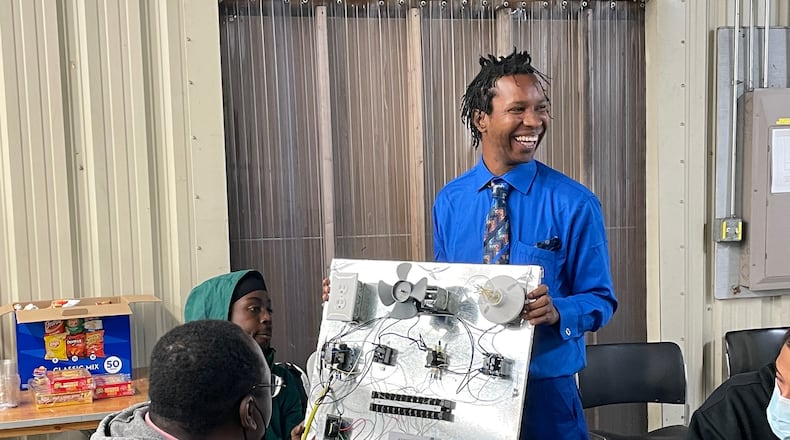With the help of local business owners Dexter McGhee, of McGhee Electric, and Lynn Gray, of Pyramid Heating & Air, who serve as instructors, DUMF offers introductory level training programs for electric and HVAC trades.
According to DUMF CEO Rev. Tom Cruse, the idea to create skilled training programs was sparked in 2017 when Cruse, a DUMF board member at the time, contracted to have an electrical repair done at the now-closed Center on Otterbein.
“Dexter’s name was given to me. He came and fixed the electrical problem, I gave him the check, and he went out to his truck and stopped,” Cruse said. “He turned around and came back to me to say, ‘You know, we need electricians. I would be willing to train if you will facilitate it.’”
The program was initially held at the Center on Otterbein, with the first class of students graduating in 2018. The center had proved inadequate in terms of space, Cruse said, and was sold soon after. Training is now held in an annex facility on Salem Avenue, made available to DUMF by Nustream founder and CEO Jim Baker.
The electrical training program involves theory, safety, codes, wiring experience on a simulated wall and in a private home, and students complete 40 hours of training. The 40-hour HVAC training includes completing the construction and testing of their own heating control system prototypes, along with diagnostic experience on non-working systems in the training facility and in a private home scenario.
On Saturday, 15 people graduated from the programs. Prior to receiving their certificates, students had the opportunity to demonstrate the skills they learned, and also heard from representatives of Sinclair Community College regarding opportunities for continued training and certification through work/study and apprenticeship programs.
“We reach into the neighborhood in a way that others don’t,” Cruse said. “All we do is just get the process started and now it’s up to them.”
About the Author


